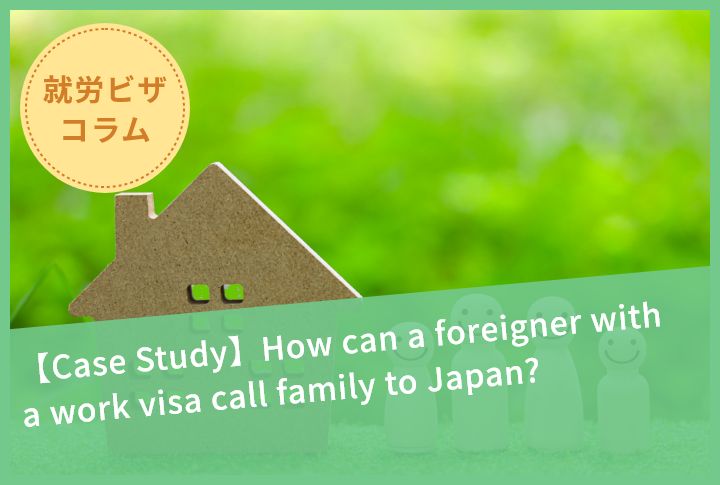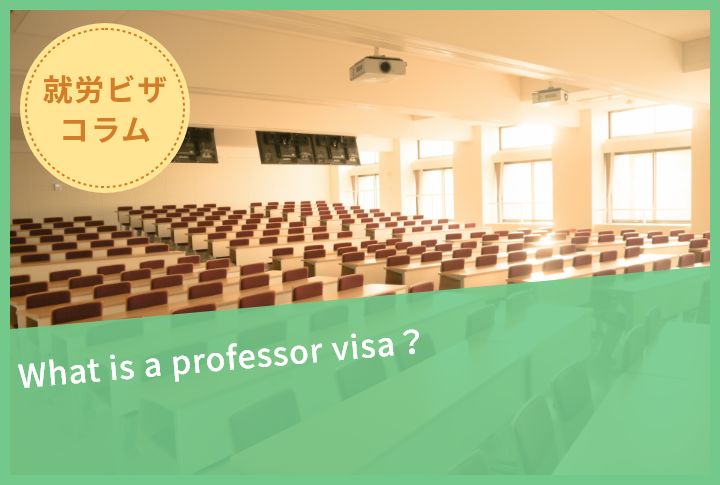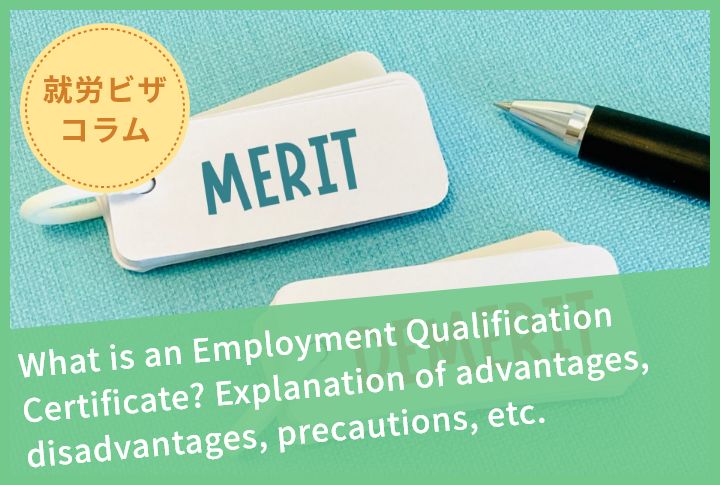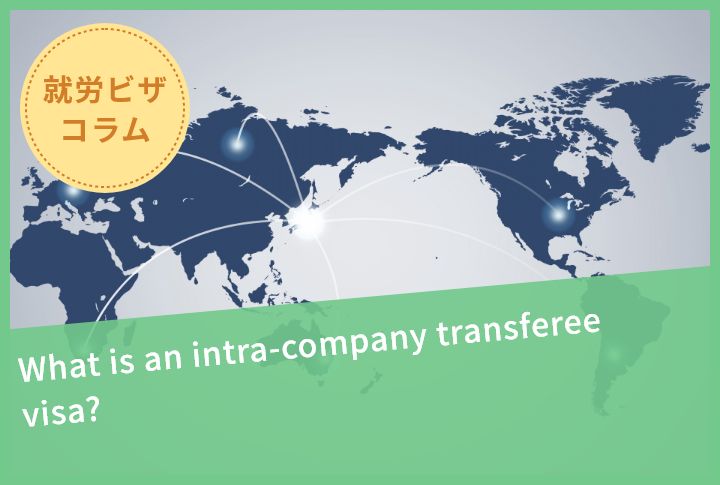Column Explaining the Future Creation Personnel System (J-Find)
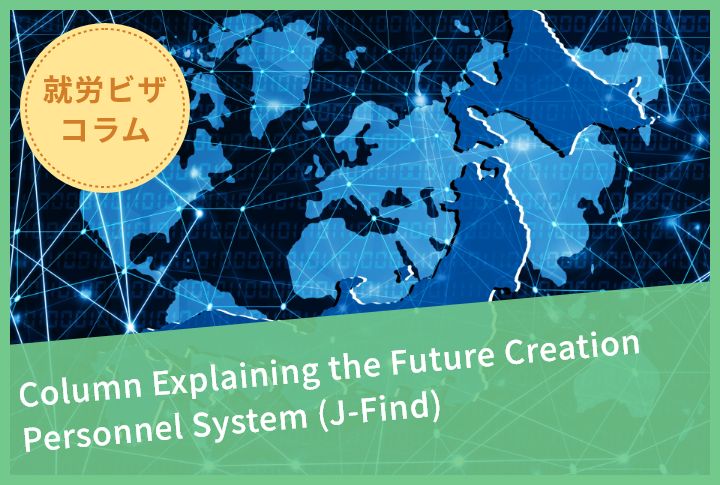
In April 2023, the “Future Creation Personnel System” (J-Find) was launched.
Given the current situation of fierce competition for talented individuals worldwide, this system aims to attract promising young talents from overseas who have the potential to excel in Japan in the future, facilitating their employment or entrepreneurship in Japan at an early stage. The system offers various preferential treatments for entry and stay.
As this information is beneficial for personnel responsible for talent acquisition in Japanese companies, let’s explain it further in this column.
Index
1. What is the Future Creation Personnel?
The term Future Creation Personnel refers to “young foreign individuals who have graduated from top-tier universities and graduate schools abroad and possess the potential to excel and contribute to Japan in the future.”
The criterion for excellence is graduating (completing studies) from universities or graduate schools that rank highly in global university rankings.
These young individuals naturally consider “which country they can work in to utilize the knowledge and skills they have acquired,” or “which country they can live in where their “family,” including themselves, can lead happy lives.” They are actively seeking employment or entrepreneurial opportunities in various countries around the world.
On the other hand, Japanese companies, for their survival and growth, are constantly seeking talented individuals not only among Japanese students but also from abroad.
Despite these needs from students and companies, the qualification for staying in Japan (status of residence) traditionally be an obstacle for young people from overseas seeking for jobs or starting businesses in Japan.
Status of residence for foreigners in Japan is usually divided into categories based on “what they intend to do in Japan.”
For example, if they intend to work in Japan, there are categories such as “Skill,” “Technology/Humanities/International Affairs,” and “Education,” each subdivided based on the nature of employment, similarly, if they intend to study in Japan, there is a “Student” visa category.
If the recognized activities do not align with the actual activities, there is also a possibility of the status of residence being revoked.
As a result, traditionally, there has been a significant obstacle for talented young individuals from overseas who expressed interest in “seeking employment opportunities in Japan” or “trying out working in a Japanese company.”
In other words, there was a lack of flexibility in accommodating the aspirations of exceptional foreign talent to explore career options or prepare for starting business in Japan.
To address this issue, the Future Creation Personnel System was established.
The Japanese government has recently included “Future Creation Personnel System” as a new category within Designated Activities.
Being recognized as a Future Creation Personnel allows for a residence period of up to 2 years.
2. Background of the Future Creation Personnel System
The rapid development of digitization, including AI (Artificial Intelligence), and the global trend towards decarbonization to address climate change are shaping the future of industries and work practices significantly.
This will lead to significant changes in traditional work patterns and industrial structures in the future.
Around the world, there is a “competition” for top talent who possess cutting-edge knowledge and skills, considering these emerging trends.
As mentioned earlier, one of the main obstacles to acquiring talented individuals lies in immigration procedures and status of residence, are the same in all countries. Countries, such as France, have already made it easier to obtain status of residence and have implemented policies offering other favorable conditions to attract talented individuals.
On the other hand, in Japan, the aging population and declining birth rate are ongoing challenges, while there is an increasing trend of talented young individuals leaving the country.
In response to this, the Japanese government introduced the Future Creation Personnel System.
The Ministry of Economy, Trade and Industry announced in May 2022 the “Future Talent Vision,” highlighting the necessity of talent development looking towards 2030 and 2050.
Prime Minister Kishida instructed the “Education Future Creation Conference” in September 2022 to formulate concrete measures for a new system by the end of the fiscal year to accommodate highly skilled foreign talents, including international students.
In response to this directive, the Future Creation Personnel System was established. Concurrently, the “Special Highly Skilled Foreign Professional System” was also created during the same period.
Click here to view explanation of Special Highly Skilled Foreign Professional System(J-Skip).
If you consider Special Highly Skilled Professionals as accomplished adults who are already excelling worldwide, then think of Future Creation Personnel as “young individuals full of untapped potential and excitement for the future.”
The Japanese government believes that it is essential to attract both types of talent to Japan rapidly, without them, Japan may face significant challenges ahead.
3. Requirements to be recognized as a Future Creation Personnel System
To be recognized as a Future Creation Personnel, individuals must meet all three of the following criteria:
(1) Graduation from a university ranked within the top 100 in at least two of the following three world university rankings: “QS World University Rankings” published by Quacquarelli Symonds, “World University Rankings” published by Times Higher Education, and “Academic Ranking of World Universities” published by Shanghai Ranking Consultancy. Alternatively, completion of a program at a graduate school of such universities and being awarded a degree or professional degree.
In other words, a person has graduated and obtained a degree from a school that has been judged by various overseas institutions to be an excellent university or graduate school.
The current list of eligible universities includes:
https://www.moj.go.jp/isa/content/001394994.pdf
(Quoted from the Immigration Service Agency website)
(2) Graduation from the aforementioned eligible universities or graduate schools within 5 years of being awarded the degree.
Japan seeks individuals with innovative thinking and future potential, requiring them to possess the latest knowledge and skills acquired from universities. Therefore, individuals “who have high academic qualifications but graduated from university a long time ago” are not considered Future Creation Personnel.
However, there is no age limit as individuals may continue their education by pursuing additional degrees, such as an MBA, at a different university.
(3) At the time of application, the applicant must have savings equivalent to at least 200,000 Japanese yen when converted from their own currency as a livelihood expense.
While geniuses may sometimes lack funds, this program requires applicants to have enough savings to sustain themselves for a while after their arrival in Japan.
Please refer to the diagram below for more details.
 Quoted from the Immigration Service Agency website(https://www.moj.go.jp/isa/content/001394998.pdf)
Quoted from the Immigration Service Agency website(https://www.moj.go.jp/isa/content/001394998.pdf)
4. What are the preferential treatment given to Future Creation Personnel?
If you are recognized as Future Creation Personnel, you will be granted a status of residence as a “Designated Activities”.
Following activities become possible:
- Job hunting activities in Japan
- Start-up preparation activities in Japan
- Employment to supplement the funds necessary to carry out the above activities
Whereas previously clear reasons such as “work” or “study” were required to stay in Japan, now individuals can stay in Japan to “supplement necessary funds” for job hunting or entrepreneurial activities. This allows them to work and gain experience while finding suitable employment opportunities.
Although renewal of the residence period is required every single year or every 6 months, individuals recognized as Future Creation Personnel can stay in Japan for up to 2 years.
Furthermore, spouses and children of individuals recognized as Future Creation Personnel are granted a residence status called “Dependent of Future Creation Personnel.”
This means that highly skilled foreign individuals can reside in Japan with their families.
In many countries overseas, there is a culture that values not only one’s own career development but also having their families together and prioritizing their family’s happiness.
Therefore, the system design takes into consideration the ability for foreign talent to bring their families to Japan with peace of mind.
Additionally, while the “Special Highly Skilled Foreign Professional System” relaxes the employment requirements for spouses, but in the Future Creation Personnel System, spouses need to obtain a “permission to engage in activity other than that permitted under the status of residence previously granted” to work in Japan.
Although spouses can accompany their partner to Japan, they must separately apply and be approved to work.
5. Application process for the Future Creation Personnel System
The Future Creation Personnel System is designed to facilitate job hunting and entrepreneurship activities in Japan for individuals recognized as “Future Creation Personnel.” To do this, you need to prove that you meet the requirements for a Future Creation Personnel.
Foreign nationals who wish to obtain residency status as Future Creation Personnel must apply for a “Certificate of Eligibility” before entering Japan.
During this process, they must submit documents proving their graduation from a university and the year of degree acquisition.
The Certificate of Eligibility is a document that, when issued by Japanese Immigration Authorities, certifies that the intended activities of a foreign national planning to come to Japan meet the requirements for entry into Japan.
When foreign nationals wish to enter Japan, they obtain a visa from the Japanese embassy or consulate in their country, which recommends that they are allowed to enter Japan without any issues.
By obtaining the Certificate of Eligibility in advance and presenting it at the foreign embassy or consulate, the issuance of the visa and permission to enter Japan can be smoothly facilitated.
Normally, residency applications are submitted by the applicant themselves to the regional Immigration Bureau with jurisdiction over their place of residence. However, in this program, as applicants are assumed not to be in Japan at the time of application, it is possible for third parties such as accepting companies or administrative scriveners who have been requested by the applicant to submit the application on their behalf.
For individuals who are already in Japan with a different status of residence and wish to engage in activities as Future Creation Personnel, they must apply for permission to change status of residence.
Similar to the application for the Certificate of Eligibility, documents proving their eligibility as Future Creation Personnel, such as educational records, are required.
6. Summary
In this column, we explained the Future Creation Personnel System(J-Find).
We hope it serves as a useful reference for young foreigners considering working in Japan and for Japanese corporate representatives seeking talented individuals.
Once recognized as Future Creation Personnel,
- Individuals are granted status of residence under the Designated Activities category, allowing them to engage in job hunting, entrepreneurial preparation activities, or employment to supplement necessary funds for these activities
- Their stay in Japan is permitted for a maximum of 2 years
- Accompanying spouses and children can also be facilitated more smoothly
The above are the characteristics of the Future Creation Personnel System.
For example, in today’s chaotic world, many young people may consider overseas migration in search of a safe and secure country.
If they are pondering, “Which country should I choose?”, Isn’t Japan attractive because you can use this system to decide on your career path over a period of up to 2 years?
For Japanese corporate representatives, knowing about this program increases the selling points when acquiring talented foreign individuals.
Companies can also actively support procedures such as obtaining status of residence.
However, the Future Creation System is still in its early stages.
There may be overseas individuals wondering, “Do I really meet the requirements?” or corporate representatives who “understand the advantages for Japanese companies but are unsure about the specific application process.”
Our administrative scrivener, Daiichi Sogo Office, specializes in international business.
If you are even slightly interested in the Future Creation System (J-Find), we offer free consultations. Please feel free to contact us. We look forward to hearing from you.









